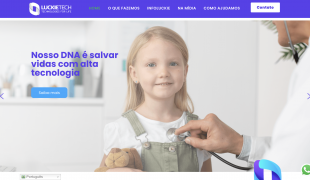- 2377
- 211
- 10
- 11
- 0
- Help Ukraine
About the solution
Steven Keating's advocacy for open patient data began with his cancer diagnosis. In 2007, during a volunteer brain study at Queen's University, an MRI revealed a small abnormality in his left frontal lobe, initially deemed insignificant. However, in 2014, while at MIT, he started noticing a faint vinegar smell for several seconds each day. Suspecting a link to the earlier abnormality near the brain's smell center, he sought further medical attention. An MRI showed that the abnormality had grown into a baseball-sized tumor—a low-grade glioma—requiring immediate surgery. To safeguard his cognitive functions, the surgery was performed with him awake and engaging with the medical team, and he requested that the entire 10-hour procedure be recorded.
True to his scientific mindset, Keating delved into his diagnosis by studying his MRI scans, watching the surgery footage, and creating a 3D-printed model of his tumor. This model sparked a collaboration between MIT Media Lab and Harvard University to develop advanced 3D-printed medical models, illustrating how his scientific approach not only helped him manage his illness but also inspired innovation in the medical field.
His advocacy for open patient data was rooted in his belief that access to medical information is essential for effective personal health management. He collected over 200 gigabytes of his medical data—including MRI scans, genetic sequencing, and surgery footage—and defended patients' rights to control their health data. He believed this access could facilitate better personal care, enable second opinions, and create valuable opportunities for collaboration in medical research. His story gained widespread attention, especially after being featured in The New York Times and his TEDx Talk, where he emphasized the importance of transparency in healthcare. Keating also served on the Federal Precision Medicine Task Force, advocating for policies that would simplify patients' access to their medical data. His vision was a future where patients could easily share their information with doctors and researchers, facilitating breakthroughs in treatments for conditions like brain cancer.
Keating joined the Open Human Foundation to assist other patients, collaborating with hospitals, researchers, and advocacy groups to promote open and collaborative healthcare systems. Even after being diagnosed with glioblastoma, an aggressive brain cancer, Keating continued to fight for patient data rights. He participated in experimental treatments and advocated for accessible healthcare data until his passing in 2019. His legacy lives on through his advocacy for accessible patient data, exemplifying how curiosity, science, and shared knowledge can transform healthcare.
Adapted from:
https://www.nytimes.com/2015/04/01/technology/the-healing-power-of-your-...
https://news.mit.edu/2019/celebrating-curious-mind-steven-keating-0722
This solution shall not include mention to the use of drugs, chemicals or biologicals (including food); invasive devices; offensive, commercial or inherently dangerous content. This solution was not medically validated. Proceed with caution! If you have any doubts, please consult with a health professional.
DISCLAIMER: This story was written by someone who is not the author of the solution, therefore please be advised that, although it was written with the utmost respect for the innovation and the innovator, there can be some incorrect statements. If you find any errors please contact the patient Innovation team via info@patient-innovation.com
-
-
300
-
0
-
3062

Father Joel Junior founded Luckie Tech - a device that monitors vital signs of children with cancer.
CAREGIVING
Cancer
5 Senses support devices: (glasses, hearing aids, headphones...)
Assistive Daily Life Device (to help ADL)
AI algorithm
Enhancing health literacy
Promoting self-management
To implement medical examination
To implement a diagnostic tool
Preventing (Vaccination, Protection, Falls, Research/Mapping)
Raise awareness
Caregiving Support
General and Family Medicine
Medical Oncology
Pediatrics
Brazil
-
-
-
363
-
0
-
4095

Susana and Joe, parents of Caui, created the platform "Vencer o Autismo" in order to reduce the negative stigma associated with autism.
COMMUNICATION: Communicating, whether by speaking, listening, or other means
CAREGIVING
Social interaction
Autism
Social Media
Website
Strategy/Tip
Enhancing health literacy
Promoting self-management
Managing Neurological Disorders
Building Supportive Community Relationships
Promoting inclusivity and social integration
To improve Treatment/Therapy
Preventing (Vaccination, Protection, Falls, Research/Mapping)
Raise awareness
Caregiving Support
Child and Adolescent Psychiatry
General and Family Medicine
Medical Oncology
Pediatrics
Portugal
-
-
-
240
-
0
-
2308

Check a Mole game: raising awareness of skin cancer and teaching people the ABCDE method of melanoma
-
 en
en